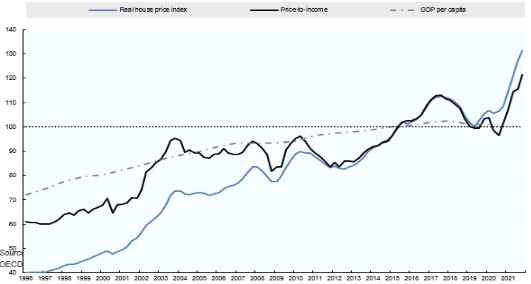Humility cannot exist without pride; they are binary opposites. This essay will argue that humility and pride must coexist for either one to have meaning. It will examine a Shakespearian tragedy, with a tyrannical protagonist at its centre, and a modern Australian novel, which has Homer’s Iliad as its pretext, and will seek within these texts proof of the above assertion. Macbeth and Ransom, despite their different genres, are narratives which explore both pride and humility within the storylives of their main characters.
Considering first, the eponymously titled Macbeth, it tells a story focused around the central character Macbeth (M) (Abbott 132). Some thirty percent of the play’s lines are spoken by M; he is, in effect, the main narrator (ed Miola 20). The many asides and soliloquies within the play have M, at times, discoursing directly to the audience and sharing his inner thoughts: “Let every man be master of his thoughts” (3.1.40) (4.2.144). This is important, because without these portals into M’s state of mind the audience would not perceive, so clearly, how pride is followed by humility within the representation of this character:
“Stars, hide your fires,
Let not light see my black and deep desires;” (1.4.50-51)
M in this aside lets the audience know for the first time his hidden aspirations for the throne. The text conveys M’s reluctance to carry out his inchoate assassination plans in subsequent dialogue with Lady Macbeth (LM): “We will speak further”, M vacillates (1.6.58-78). This reluctance builds in M’s following soliloquy:
“but only
Vaulting ambition, which o’erleaps itself
And falls on th’other –“ (1.7.26-28)
M is stating that his ambition is not as worthy, as the “renown and grace” of the king, and in his awareness of the wrongness of murdering Duncan there is humility (2.3.92). This internal conflict within M heightens both expressions of pride and humility throughout the text. What about the inter-character dynamics within the play?
Macbeth and Ransom
Expanding the focus externally, to consider M’s relationship with his wife, the audience can witness the binary opposition between pride and humility represented within their exchanges. LM’s pride is in her own ‘against gender type’ viperous characteristics, and she chides M upon his lack of evil (1.5-17-18). LM goads M, challenging him to carry out the murder or “live a coward in thine own esteem” (1.7.43). She boasts about her own savage commitment to achieve her ambition for M; including infanticide: “I have given suck… dashed the brains out” (1.7.55-59). In the second act LM berates his sensitive reaction to the assassination: “My hands are of your color, but I shame to wear a heart so white” (2.3.67-68). The leitmotif of blood in the play symbolises pride, as blood is spilt through actions taken under its influence, and this blood stains souls: “out damned spot” (5.1.30).
LM at one point in the play calls the spirits to “unsex me” and this informs the audience of her unnatural desire to defeminise herself (Baldick 138) (2.3.96, 100,110). Milk and blood are represented as opposing symbols of humility and pride: “the babe that milks me” (1.7.55) (1.6.45-50). I agree with William Carroll’s insight that, “Mother’s milk, then, figures as the opposite of male-gendered violence and cruelty. Men produce blood, and women (should) produce milk” (Carroll 349). Female characters in Macbeth, LM and the witches, are gender antitypes, and they act out of pride and express less humility than their male counterparts. This gender subversion is echoed in the text when M’s character is called “Bellona’s bridegroom”, merely the bridegroom to the ‘goddess of war’ (ed Miola 11) (1.3.56). Malcolm, a virgin, and Macduff, born by caesarean, are untouched by women, and provide a binary opposite to these unnatural women (4.3.125-126).
Macbeth was published during the reign of James I, the Scottish king who ascended the English throne; and who commissioned the King James Bible (Baldick 131). Macbeth, as a Jacobean tragedy, can be viewed as part of the metanarrative which warns that pride comes before a fall. Pride is a sin according to the Bible (Proverbs 16:18). Scholars, such as Phillip Edwards in his book, Shakespeare and the Confines of Art, have noted that Macbeth also warned its contemporary audience about the consequences of assassinating God’s representative on Earth (Edwards 122) (Carroll 217). Note the intertextual Biblical reference to “Golgotha”, where Christ was crucified, and the subsequent repeated greeting, “All hail”, by the witches to M (ed Miola 13)(ed Miola 9 footnote 49). Shakespeare was writing this during a time of theological debate about free will versus predestination (Erasmus 301-310, 21,36-38, 59-62, 75-80). Binary oppositions between male and female, Christian and pagan, and pride and humility are at the core of the narrative meaning of Macbeth. Confirming this is M’s first line in the play: “So foul and fair a day I have not seen” (1.3.39). Witches tell us, “Fair is foul, and foul is fair…” (1.1.11).
David Malouf’s novel, Ransom, takes the characters, setting, and plotline, of Book 24 from Homer’s epic poem the Iliad and adapts it to a modern form for a contemporary readership. This example of intertextuality weaves aspects of the known together with new creations to arrive at a narrative, which meditates on old age, grief, pride and humility (Malouf 93). The tone of the text suggests to the reader that this is the shadow side of the heroic epic, where glorious action has given way to contemplation: “he stands quietly in the stillness that surrounds them (Malouf 177). Ransom has an external third person narrator, and the novel is split into five chapters, with Achilles being the focalizer in chapter one.
In the unassailable pride of Achilles, “day after day, he rages”, the reader is presented with the contrasting binary opposite to the abject humility of Priam, who appears in the next chapter (Malouf 36). Historian, Dr Ian Plant, sees the plotline of the Iliad, Ransom’s pretext, being driven by the unyielding pride of Achilles (Plant 144). Achilles refusal to take part in battle because of the slur on his character by Agamemnon, which leads to the death of Patroclus at the hands of Hector, and to the rage of Achilles dragging Hector’s corpse around behind his chariot for, “eleven days now since Hector’s death” (Malouf 50) (Homer 9:307-317). In Ransom Achilles is presented to the reader, very much like a prisoner on death row, locked inside his rage: “He is waiting… For something to break the spell…”(Malouf 35).
Humility is perceived when contrasted with pride; and in chapter two of Ransom the tight focalization shifts to Priam. Hector’s grieving father is old and a once proud ruler, who is witnessing, “a kingdom ravaged and threatened with extinction” (Malouf 40).The text resonates with Priam’s concerns, his evaluation of his family, his relationship with wife Hecuba, and his back story; which is predicated on chance: “the smell of the slave’s life… I can never rub off” (Malouf 67-69). It is Malouf’s injection of the modern concept of chance into a story traditionally bound by the fated actions of the gods, which allows real humility to emerge in all its fragility:
“‘Not a mockery, my friend… the way things are. Not the way they must be…a world…subject to chance’.
’Chance?’” (Malouf 46).
Malouf introduces the concept of free will/chance via the character, the goddess Isis, and the idea to ransom his son’s corpse is not an instruction from Zeus, as in the Iliad, but something Priam arrives at himself: “Sure of his decision”(Malouf 46-49) (Homer 24:24). This reversion of the Iliad is revolutionary because scholars, such as Julian Jaynes, state that: “The characters of the Iliad do not sit down and think out what to do. They have no conscious minds…and certainly no introspections” (Jaynes 72). In Malouf’s novel, Priam’s choice to ransom Hector, and risk total humiliation at the hands of Achilles, is presented to the reader as a gamble. Priam’s process involves stripping away all, “signs of kingship” and humbling himself before Achilles in his grief (Malouf 54). Hecuba’s anger toward Achilles, contrasts Priam’s humility, as she wishes to: “tear his heart out and eat it raw!” (Malouf 51).This chapter concludes with another binary opposition representation, this time involving class and status.
Macbeth and Ransom
Somax, a character not known in the Iliad, shares the focalization with Priam through the third chapter of Ransom. Somax is an older working class carter, and his mule drawn cart contrasts the mighty horse drawn chariots of the heroes of the Iliad; symbolising and juxtaposing representations of humility and pride (Homer 23:2). Priam’s interactions with Somax outwardly represent the degrading of the king through intimate contact with an ordinary human being, an ”affront to the king’s sacred person” (Malouf 113). However, it is this humanising process, which Ransom depicts without sentimentality, and which evokes such poignancy within the reader, as the characters interact with their setting (Farner 175-176). Priam is shedding the outer shell of pride: “The water, the fish…had always been here…But till now….his attention was fixed on….Himself” (Malouf 122).
This essay has identified binary opposites in the textual representations of humility and pride in the storylives of the characters inhabiting Macbeth and Ransom. The evidence presented contends that you cannot understand humility without its counterpart pride, as one acts as a mirror for the other, contrasting behaviours and their effect on narrative meaning within a text. M, the character, sustains this dichotomy within himself, whereas it is externalised in his relationship to his wife. The juxtaposing of antitype gender behaviours by characters within Macbeth, continued this binary representation of pride and humility; contrasting Christian humility with sinful human pride. Achilles and Priam, in Ransom, are like two magnetic poles attracting and repulsing elements of pride and humility. Priam’s loss, and gain, cannot be appreciated without an intimate comparison to Achilles’ ‘death row’ prideful reality. Humility and pride are within these two texts, inextricably enjoined, often uncomfortably; like master and slave.
©Robert Hamilton
BIBLIOGRAPHY
Abbott, H. Porter, The Cambridge Introduction to Narrative, Cambridge University Press, Cambridge, New York, 2008.
Baldick, Chris, Oxford Concise Dictionary of Literary Terms, Oxford University Press, Oxford, 2004.
Bible – New World Translation of the Holy Scriptures, Watch Tower Bible Society of Pennsylvania, 1984.
Carroll, William C, Macbeth – Texts and Contents, Bedford Shakespeare, London, 1999.
Edwards, Phillip, Shakespeare and the Confines of Art, Routledge, London, 2004.
Erasmus, Desiderarius, Collected Works of Erasmus, Vol 76 Controversies, (ed Charles Trinkaus), University Toronto Press, Toronto, 1999.
Farner, Geir, Literary Fiction – The Ways we Read Narrative Literature, Bloomsbury, New York, 2014.
Finley, M. I. The World of Odysseus, New York Review Books, New York, 2002.
Homer, http://www.gutenberg.org/files/6130/6130-pdf.pdf (trans Alexander Pope).
Homer, http://classics.mit.edu/Homer/iliad.24.xxiv.html (trans Samuel Butler).
Jaynes, Julian, The Origin of Consciousness in the Breakdown of the Bicameral Mind, Mariner Books Houghton Mifflin Co, New York, 2000.
Malouf, David, Ransom, Random House, Sydney, 2000.
Plant, Ian, Myth in the Ancient World, Palgrave Macmillan, South Yarra, 2012.
Shakespeare, William, Macbeth, (Ed – Robert S. Miola), Norton Critical Edition, 2nd Ed, New York, 2014.











